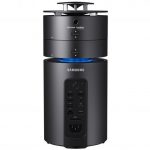UK banks underreport cyber attacks

British banks are afraid that if they disclose the full picture of the cyberattacks they're under, they might suffer public backlash resulting in reputational damage and loss of customers. That's why they never fully report when they're under cyberattack. And the attacks are getting more frequent.
This is all according to Reuters, which cites Israeli-based cyber security firm Illusive Networks, Barclays, and others.
Inadequate storage tools hold back container deployment

The use of containers delivers many benefits including lower costs and greater agility. But the results of a new survey show that a lack of adequate tools to handle storage is holding back deployment.
The survey by data storage company Portworx finds that 55 percent of IT professionals would deploy stateful containers within one year if storage challenges could be resolved.
Hackers selling NSA hacking tools for 10,000 bitcoins

It seems as no one wants to buy NSA’s exploit tools. Or maybe ShadowBrokers, the group selling the tools, overpriced the deal.
The group, allegedly formed by Russian, state-sponsored hackers, decided to pull the auction on the tools. Instead, it turned it into a crowdfunded sale, aiming for 10,000 bitcoin, or slightly over $6 million.
Convenience of public Wi-Fi overrides security fears

There's an expectation that public Wi-Fi will be available pretty much everywhere we go these days. We access it almost without thinking about it, yet public networks rarely encrypt data leaving users vulnerable.
A new survey of more than 2,000 business users by networking company Xirrus finds that while 91 percent of respondents don't believe public Wi-Fi is secure, but 89 percent use it anyway.
Lost for words? Facebook Messenger suggests conversation topics at the cost of privacy
Facebook is keen for people to keep talking. Recently the company has been pushing its Messenger app as a way for people to stay connected in a variety of ways, but it has also noticed a problem -- people don’t always have something to talk about.
But Facebook (of course!) has a solution. To help those who struggle with small talk, an experiment is underway whereby Facebook Messenger will suggest possible topics for conversation. These are, obviously, not just random suggestions, but topics based on the activities of the participants -- opening up the usual privacy concerns that tend to be associated with Facebook.
Amazon Family Vault lets you share your Prime Photos storage with others for free

Amazon likes to chuck a few freebies (well... not free exactly...) at Prime subscribers, and today there is a new addition to the pile -- Family Vault. The new feature allows subscribers in the US to share their free photo storage space with up to five other people.
This makes it possible for a family to store all of their photos in one place. In addition to the unlimited shared photo storage, each person invited to the Family Vault is given an extra 5GB of storage which can be used to house other files.
When is a private cloud cheaper than a public one?

According to new research, a private cloud can be much cheaper than using a public cloud service, though only when it's running on a large scale.
The analyst firm 451 Research has released a new report exploring the costs of private, public and hybrid cloud services, revealing that when a private cloud is large enough, it can actually be cheaper than public cloud services. There are, however, upsides and downsides to both approaches.
Samsung 'ArtPC Pulse' is a cylindrical Windows 10 desktop with AMD RX460 GPU

When Apple released its cylindrical Mac Pro, I was in awe. Not only was it beautiful, but it wasn't form over function. Actually, a cylinder is a wise design choice, as it can aid in cooling when done correctly. Surprisingly, Windows PC manufacturers took a while to start really embracing the design.
Recently, for instance, HP announced the Wave -- a tube-like PC with integrated 360 degree Bang and Olufsen speaker. Now, Samsung is following HP with the ArtPC Pulse. It too features a 360 degree speaker in its design, but by the arguably superior Harman/Kardon. Where Samsung's offering greatly differs, however, is gaming. It has a respectable AMD RX460 GPU. As you can imagine, the drop-dead gorgeous ArtPC Pulse will not come cheap.
Canonical gives Ubuntu Linux 17.04 the name 'Zesty Zapus' (jumping mouse)

Linux distributions and silly names go together like peanut butter and jelly. For whatever reason, the maintainers of these operating systems seem to enjoy having fun with what they call them -- some argue it is childish. Even Google -- a billion dollar company -- uses sugary dessert names for the Linux-based Android operating system.
One of the most well-known Linux distributions to use funny names is Ubuntu. It famously uses the convention of an adjective and a lesser-known animal, each starting with the same letter. The letter is chosen sequentially by alphabet. For example, Ubuntu 16.10 uses the letter "Y" -- "Yakkety Yak". The next version of the operating system will use the letter "Z". While many folks hoped for "Zebra", that would be too obvious. Instead, Canonical has chosen "Zesty Zapus". Don't know what a zapus is? Neither did I. It is apparently a type of jumping mouse. The selection was not made at random, however, as the company has an explanation for the decision.
Google Glass: Not the failure it's made out to be?

Failure. Disaster. Flop. These are just a few of the words used to describe Google’s foray into wearable and augmented reality technology known as Google Glass. When the first videos of Google Glass were released to the public, they sparked the imaginations of millions. Many began to dream up fascinating new applications for this innovative technology. Just think of how it would impact businesses! How would our everyday lives change with this powerful device going with us wherever we went? The possibilities were staggering, and a revolutionary change in how the world works appeared to be right around the corner.
As we now know, Google Glass is little more than a footnote. From the way most tech blogs describe it, Google’s amazing new device failed to live up to expectations. It never caught on with businesses or the public at large, and the result was a disaster the likes of which Google isn’t familiar with. In fact, many websites are urging companies pushing similar devices to do everything they can to avoid Google Glass’s mistakes. If there’s one thing to learn from the Google Glass phenomenon, it’s that Google struck out with this attempt.
Peanut butter budgeting for cyber security -- and why it doesn't work.

The economics of cyber security are completely lopsided. There are a seemingly infinite number of cyber security risks out there, with more and more popping up every day. Hackers appear to have unlimited resources, and cybercriminals are literally reinvesting their lucrative profits into new and innovative ways to exploit, extort, and steal from your organization.
But... in order to foil, frustrate, and impede the nefarious schemes of these very well-equipped and well-funded adversaries, we as cyber security professionals are grudgingly allocated a hopelessly limited budget. The meagerness of which we are then asked to stretch ever so thinly across every conceivable threat vector out there in order to assure the business (management, executives, and the board) that, "We’re doing everything possible".
Facebook Messenger gets data-saving mode in beta, test it now

Little more than a week ago, Hurricane Matthew rolled up the southeastern US coast, wreaking havoc from Florida to North Carolina, with the latter seemingly getting the smallest hit, though it turned out the worst in the long run. My cousin, located there, was without power for some 48 hours and was forced to place his phone in power-saving mode. This eliminated Messenger and all information we received from him afterwards came from texts.
SMS, it seems, is fine in that mode, but Messenger was not -- he claimed he could see that he had messages, but he couldn't read them.
How to significantly improve Windows 10's wallpaper quality

You may be more than happy with your choice of Windows wallpaper, but what you may not know is it’s not as good as it could be.
I’m not saying the image itself isn’t great, but the problem is Windows 10 automatically compresses the picture to help system performance, and that reduces the overall wallpaper quality, quite considerably.
What you need to know about product lifecycle management

In any kind of production process, whether the end product is a washing machine or a piece of software, there are a number of stages to go through. From the initial idea, through design to manufacturing, service and support, and end of life and disposal, all products go through a similar lifecycle.
Product lifecycle management is about integrating the staff, data, processes and business systems that go to produce a product. This in turn provides a fund of information surrounding the creation of the product which can be used to streamline the development of future products. PLM software allows this to be done cost effectively across the entire lifecycle of a product.
Acer updates Chromebook 15 with 12-hour battery life -- $199 exclusively at Walmart

Chromebooks are not for everyone, but for many home users, it is absolute perfection. If you live in the web browser -- as many people do nowadays -- laptops running Google's Linux-based Chrome OS are a godsend because they are maintenance free. No need for confusing OS upgrades or anti-virus software. It just works, and it works well. Since they can now run Android apps too, they could become a serious threat to Microsoft and Windows 10.
One of the most attractive aspects of Chromebooks is price -- they are often quite affordable. Today, Acer refreshes its 15.6 inch Chromebook 15 with a mind-boggling 12 hours of battery life. Best of all? It starts at $199. Yes, this model will get Android app support in a future update too.
Most Commented Stories
© 1998-2024 BetaNews, Inc. All Rights Reserved. Privacy Policy - Cookie Policy.




